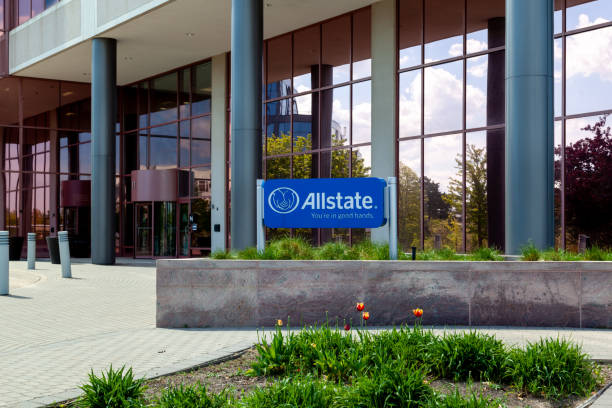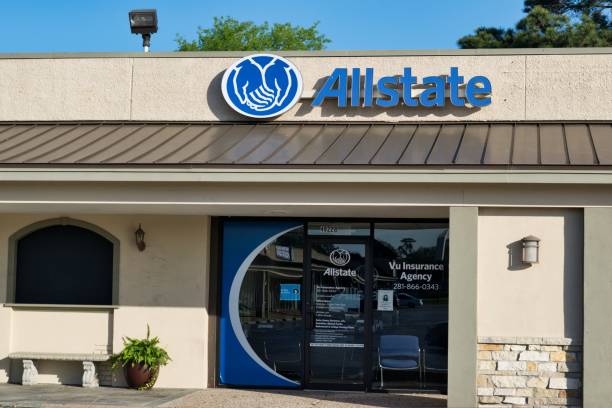If you’ve been injured in a car accident, you may be wondering what kind of coverage can help you pay for your medical bills, lost wages, and other expenses. One option is Allstate personal injury protection (PIP), also known as no-fault insurance. In this article, we’ll explain what PIP is, how it works, and why you may want to consider it.
Table of Contents
What is PIP?
PIP is a type of coverage that pays for your medical expenses, regardless of who was at fault for the accident. It can also help cover your lost wages if you are unable to work due to your injuries, or pay for substitute services if you need help with household tasks. In some cases, PIP can even cover funeral expenses if the accident results in death.
PIP is required in some states, but not all. You can check the list of states that require PIP here. If you live in a state that requires PIP, you may have to choose a minimum amount of coverage before you can buy it. The minimum amount varies by state and by insurer.
READ ALSO:
- What is Collision Insurance? A Complete Guide
- Understanding Medical Insurance in California
- Affordable Dental Insurance: Your Guide to Choosing the Best Plan for You
- Get the Coverage You Need with Liberty Car Insurance
- The Intersection of Faith and Health: A Guide to Christian Health Insurance
- Affordable Dental Insurance: Your Guide to Choosing the Best Plan for You
How does PIP work?
PIP works by paying for your medical bills directly from your pocket or the insurer’s pool of funds. You don’t have to file a claim or prove who caused the accident. However, if you do file a claim with another driver’s insurance company or with the state’s no-fault fund, they may deny your claim if they find out that you have PIP coverage.
PIP also has some limitations and exclusions. For example:
- PIP does not cover damage to your vehicle or other people’s property.
- PIP does not cover medical expenses that are not related to the accident.
- PIP does not cover co-pays or deductibles that are covered by your health insurance.
- PIP does not cover legal fees or court costs.
- PIP may have limits on how much it pays per person or accident.
You should read your policy carefully and understand what is covered and what is not.
Why should you consider PIP?
PIP can be a valuable addition to your auto insurance policy, especially if you have health insurance that has high deductibles or limits. With PIP, you can avoid having to pay out-of-pocket for medical expenses that exceed your health insurance coverage. You can also avoid having to deal with multiple insurers or claims processes if you are involved in an accident.
PIP can also help protect your family from financial hardship if something happens to you while driving. For example:
- If you are injured in an accident while driving someone else’s car, such as a rental car or a friend’s car, PIP may cover your medical bills regardless of who was at fault.
- If you are injured in an accident while walking or biking on the road or in public places, such as sidewalks or bike lanes, PIP may cover your medical bills regardless of who was at fault.
- If you are injured in an accident while traveling abroad with someone else’s car rental agreement (such as AAA), PIP may cover your medical bills regardless of who was at fault.
How to file a claim with Allstate PIP?
If you have a valid claim for PIP benefits, you should contact Allstate as soon as possible. You can call them at 1-800-ALLSTATE (1-800-255-7828) or visit their website to file a claim online. You will need to provide some information, such as:
- Your name, address, phone number, and email address.
- Your policy number and the date of the accident.
- The name, address, phone number, and insurance information of the other driver(s) involved in the accident.
- The location and date of the accident.
- A description of how the accident happened and what injuries you suffered.
- Any medical records or bills that support your claim.
You should also keep copies of all your documents and receipts related to your claim.
How long does it take to get paid by Allstate PIP?
The time it takes to get paid by Allstate PIP depends on several factors, such as:
- The complexity of your case and the amount of damages you are claiming.
- The cooperation of the other driver(s) involved in the accident and their insurance company.
- The availability of evidence and witnesses to support your claim.
- The state laws and regulations regarding PIP claims.
Generally, it can take anywhere from a few weeks to several months to get paid by Allstate PIP. However, you should not wait too long to file a claim or seek legal advice if you have any questions or concerns about your rights.
What are some tips for dealing with an insurance adjuster?
An insurance adjuster is a representative of the insurance company that is handling your claim. They may contact you by phone, email, letter, or in-person to ask you questions about the accident and your injuries. They may also inspect your vehicle or property damage. Here are some tips for dealing with an insurance adjuster:
- Be honest and cooperative. Do not lie or exaggerate about your injuries or damages. Provide accurate and complete information about what happened and how it affected you.
- Be polite but firm. Do not let them intimidate or pressure you into accepting a lowball offer or signing a release form. Know your rights and limits as a PIP beneficiary.
- Be prepared with evidence. Have copies of all your documents, receipts, medical records, photos, videos, witness statements, etc. that support your claim. Be ready to explain how they relate to your injuries and damages.
- Be aware of deadlines. Follow up on any requests for additional information or documentation from the adjuster within the specified time frame. If they do not respond within a reasonable period (usually 10 days), you can assume that they have accepted your claim.
Conclusion
Allstate personal injury protection (PIP) is a type of coverage that pays for your medical expenses after a car accident, regardless of who was at fault. It can also help cover other costs such as lost wages and substitute services. However, it has some limitations and exclusions that you should be aware of before buying it.
FREQUENTLY ASKED QUESTIONS:
What is Allstate’s personal injury protection?
Allstate personal injury protection is a type of coverage that pays for your medical expenses after a car accident, regardless of who was at fault. It can also help cover other costs such as lost wages, substitute services, and funeral expenses, depending on the state and the policy.
How much does Allstate’s personal injury protection cost?
The cost of Allstate personal injury protection depends on several factors, such as the state where you live, the amount of coverage you choose, the deductible you select, and your driving history. You can get a quote online or contact an Allstate agent to find out how much PIP would cost for you.
How do I file a claim with Allstate personal injury protection?
If you have a valid claim for PIP benefits, you should contact Allstate as soon as possible. You can call them at 1-800-ALLSTATE (1-800-255-7828) or visit their website to file a claim online. You will need to provide some information, such as your name, address, phone number, email address, policy number, date of the accident, and details of the accident and your injuries. You should also keep copies of all your documents and receipts related to your claim.
How long does it take to get paid by Allstate for personal injury protection?
The time it takes to get paid by Allstate personal injury protection depends on several factors, such as the complexity of your case, the amount of damages you are claiming, the cooperation of the other driver(s) and their insurance company, the availability of evidence and witnesses, and the state laws and regulations regarding PIP claims. Generally, it can take anywhere from a few weeks to several months to get paid by Allstate PIP. However, you should not wait too long to file a claim or seek legal advice if you have any questions or concerns about your rights.
What are some tips for dealing with an insurance adjuster?
An insurance adjuster is a representative of the insurance company that is handling your claim. They may contact you by phone, email, letter, or in-person to ask you questions about the accident and your injuries. They may also inspect your vehicle or property damage. Here are some tips for dealing with an insurance adjuster:
-
- Be honest and cooperative. Do not lie or exaggerate about your injuries or damages. Provide accurate and complete information about what happened and how it affected you.
- Be polite but firm. Do not let them intimidate or pressure you into accepting a lowball offer or signing a release form. Know your rights and limits as a PIP beneficiary.
- Be prepared with evidence. Have copies of all your documents, receipts, medical records, photos, videos, witness statements, etc. that support your claim. Be ready to explain how they relate to your injuries and damages.
- Be aware of deadlines. Follow up on any requests for additional information or documentation from the adjuster within the specified time frame. If they do not respond within a reasonable period (usually 10 days), you can assume that they have accepted your claim.












